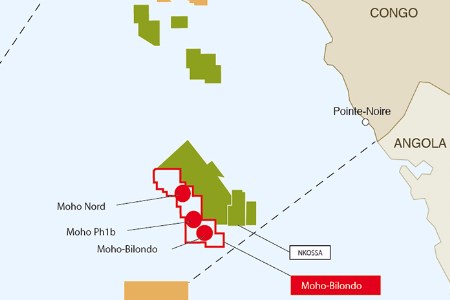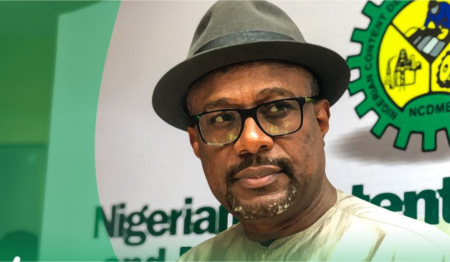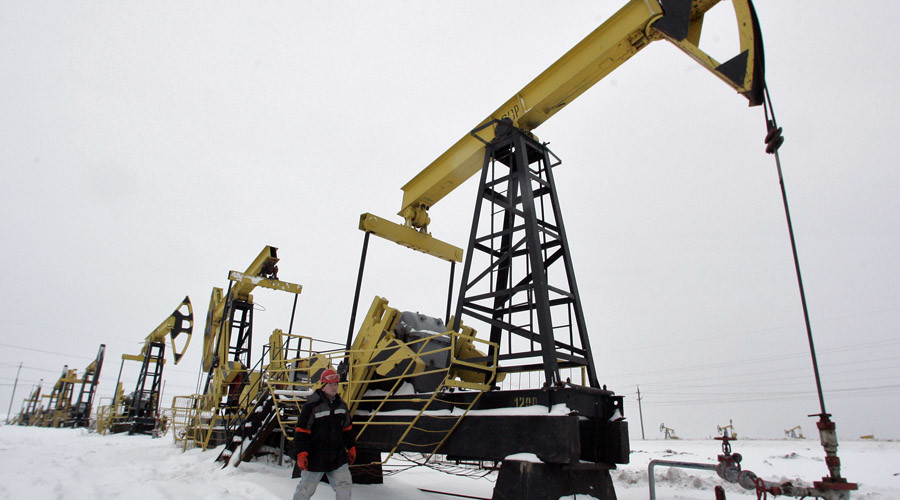*Subsidy to headline industry in Nigeria *Assets sales looming *EIA sees oil price at $70/b, JP Morgan at $125
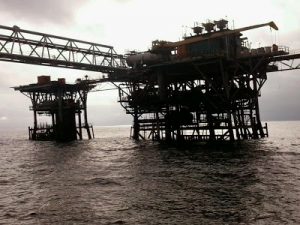
Chuks Isiwu
Lagos – Subsidy and deregulation will dominate discussions in the Nigerian oil and gas industry this year, going by the revelation of the Nigerian National Petroleum Corporation, NNPC, Group Managing Director, Mallam Mele Kyari, late last year. At the international level, energy transition remains a key threat to the hydrocarbons industry. Predicting the oil market in 2022 might be tricky. Some analysts say prices will remain volatile in the near term as investors continue to assess news on the COVID-19 variant Omicron. The U.S. Energy Information Administration, EIA, has ventured into a prediction, forecasting a $70 per barrel oil price for the year. A much more optimistic forecast comes from global financial services leader JP Morgan. It sees oil prices hitting $125 in 2022 and $150 per barrel in 2023.
Subsidy and deregulation
The issue of fuel subsidy and deregulation of the downstream petroleum business have remained controversial in Nigeria. Oil marketers usually support, and indeed champion, calls for deregulation and removal of subsidy, but organised labour, acting on behalf of the masses, would oppose the move.
Controversy, as usual, followed the revelation late last year by the NNPC group managing director that the nation would finally exit the fuel subsidy regime in February this year and that with that, the pump price of petrol would range between N320 and N340 per litre, up from the current N160 per litre.
“There will be no provision for it (subsidy) legally in our system,” he stressed as he noted that the move was now fully backed by law – the Petroleum Industry Act, PIA, which President Muhammadu Buhari signed into law last August.
Kaduna State governor, Nasir el-Rufai, expressed backing for the move, saying that if fuel subsidy was not eliminated, 35 out of the 36 states of the federation may not be able to pay salaries in 2022.
“This hullabaloo about petrol is something that we must as a country have a conversation and agree that it has to end. We cannot continue to provide petroleum to our neighbouring countries, which is what we are doing.
“Why are we doing this? For whom are we doing it? Who is the beneficiary? Which is the cabal that is the beneficiary of this and why should they hold this country to ransom and bankrupt the Nigerian economy?” El-Rufai queried.
He maintained that the government was losing N250 billion a month to petrol subsidy and that this must end. “State governments are committed to supporting the Federal Government on this. This is the position of the state governments and we met just a few days ago to take this position,” he said.
Organised labour did not take this lying low. Rather the Nigeria Labour Congress, NLC, told the Federal Government that “Nigerian workers refuse to take the bait” and that “the contemplation by the government to increase the price of petrol by more than 200 per cent was a perfect recipe for an aggravated pile of hyper-inflation”. The association, therefore, vowed to resist any hike in the price of the petrol, also known as the premium motor spirit, PMS. That was where the matter was left for last year.
The NLC has, however, already reminded the Federal Government this New Year that workers and the masses would not accept any further increase in the pump price of fuel or increase in electricity tariff. In a New Year message to workers, the NLC president, Ayuba Wabba, said the union would “resist price hike that could come in the form of subsidy removal”, urging workers and the citizens “to prepare for total war”.
He said the government was not relenting in its determination to push through further increases in the pump price of petrol, which as usual had been dubbed “removal of petrol subsidy”.
“We have told the government in very clear terms that Nigerians have suffered enough and will not endure more punishment by way of further petrol and electricity price increases,” he stressed.
Wabba continued: “Our position in this regard is predicated on four major grounds. First is our concern on the deceit and duplicity associated with the politics of ‘petrol price increase’ by successive Nigerian governments. The truth is that the perennial increase by the government in the pump price of petrol is actually a transfer of government failure and inability to effectively govern to the poor masses of our country.
“We are talking of the failure of government to manage Nigeria’s four oil refineries and inability to build new ones more than thirty years after the last petrochemical refinery in Port Harcourt was commissioned; the failure to rein in smuggling; and the failure to determine empirically the quantity of petrol consumed in Nigeria.
“The shame takes a gory dimension with the fact that Nigeria is the only OPEC country that cannot refine her own crude oil.
“During the negotiations that trailed the last increase in petroleum prices, Organized Labour made a cardinal demand on government which is that it must take immediate steps to revamp and rehabilitate Nigeria’s refineries.
“A Technical Committee was set up to monitor progress in this regard. As we all know, the work of the Technical Committee like our abandoned public refineries has ground to a halt and further negotiations with the government adjourned sine die for nearly one year now.
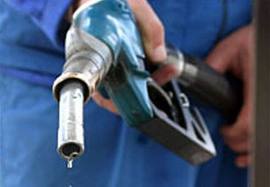
“As a responsible social partner, we have at different times called on the government to show us what they are doing in response to our demands, but silence is the response we get.”
Will the Federal Government push ahead with the plan for deregulation and the resultant petrol price hike? Will labour resist this as pledged by Wabba? It is a real case of the gathering storm.
Fix, commercialise NNPC refineries; import-based deregulation not acceptable – TUC
But, even as the NLC is all out against any increase in the pump price of petrol, the Trade Union Congress, TUC, has called for the rehabilitation and commercialisation of the Nigerian National Petroleum Corporation, NNPC’s, four refineries in Warri, Kaduna and Port Harcourt.
It made the call in reaction to Federal Government’s plan to remove the subsidy on petrol as from February this year, which the NNPC group managing director, Mele Kyari, said would push the price of the commodity to between N320 and N340 per litre.
The Secretary of TUC in Rivers State, Engr Fortune Obi, told SweetcrudeReports that the government must commercialise the four national refineries to operate optimally, using the Nigeria LNG, NLNG, model.
He maintained that the bulk of fuel being used in the country was imported and that fixing the price of an imported commodity was not a welcome development.
According to him: “It is not a welcome development. There is nothing good about deregulating an import-based commodity. The way forward is for the government to rehabilitate the refineries and fully commercialise them using the NLNG model.”
Meanwhile, the Youths and Environmental Advocacy Centre, YEAC, advocated for development of local refining capacities, including issuance of licenses for genuine investors for the establishment of modular refineries, especially for artisanal crude oil refiners, maintaining that increased local refining will crash fuel prices.
Executive Director of YEAC, Fyneface Dumnamene Fyneface, expressed shock that the government was still paying subsidy on fuel, after Presidential spokesman, Garba Shehu, announced in July 2020 that there was no more subsidy on PMS, which, he said then, was why fuel was costing N162 per litre.
“The planned increment is unacceptable as it would expose Nigerians to more hardship. Nigerians are currently suffering following the country’s harsh economy coupled with inflationary trends. The citizens can’t afford to pay extra for PMS,” he stated.
But, a business and financial analyst, Mr Ignatius Chukwu, said the fuel market must be deregulated and that government must stop fixing fuel price.
Chukwu asserted: “My position is that fuel market must be deregulated. Government should come out of deciding the price of fuel. I support that market forces should decide price per day. Doing deregulation and still fixing price is wrong.
“Pumping money to subsidy and borrowing to back it drives in inflation too. It also supports corruption. FG can maintain subsidy till Dangote refinery starts work. Then, you have government fuel and Dangote fuel. The buyers will choose.”
Will the Federal Government listen to TUC and YEAC, and heed the advice they have proffered?
Dangote Refinery
If everything goes according to plan, the 650,00 barrels per day Dangote Refinery will come on stream by the first half of this year to relieve the nation from the stress of fuel importation and boost the economy.
The project, costing about $18 billion, sits on 2,635 hectares of land at the Lekki Free Zone in Lagos. It is expected to produce Euro-V (less sulphur fuels) petrol and diesel, aviation or jet fuel and polypropylene.
On a yearly basis, it will refine 10.4 million tonnes, MT, of petrol, 4.6MT of diesel and 4MT of aviation or jet fuel.
Nigeria currently imports most of the fuel being consumed in the country. NigerianS are, therefore, eagerly awaiting the commencement of operation of the Dangote refinery as it will ensure uninterrupted flow of products to consumers, save the nation huge foreign exchange expended on the importation of fuel and save the country from low quality fuel that sometimes comes into the country.
Moreover, it has been estimated that the refinery will create 4,000 direct jobs and 145,000 indirect jobs
Upstream: Assets sales looming
Nigeria, Africa’s largest oil producer, would likely lose a lot to divestment by international oil companies, IOCs, this New Year. Chevron, Shell and ExxonMobil are mentioned as companies that would likely sell their onshore assets during the year.
This is according to S&P Global Platts report, quoting industry officials and analysts.
According to the report, 2022 poses to be a very challenging year for Nigeria, with the country facing a race against time to implement reforms needed to bolster exploration and check declining oil production as it fights a wave of divestments from IOCs.
It reported that many oil majors were divesting legacy oil and gas assets in Africa as they target net-zero carbon emissions while hanging onto their most efficient and often largest oil projects.
In the case of Nigeria, the report noted that the signing into law of the all-important Petroleum Industry Act, PIA, last August by President Muhammadu Buhari would not likely bring a turn-around for the oil sector.
“The fact is that this Petroleum Industry Act is coming a little too late as it has been delayed for too long.
“Those who were rightly placed to pioneer the implementation are not the people in now. So, I expect to see more divestment by oil majors from selected assets because things are not working as they should be,” Abiodun Adesanya, the Chief Executive Officer, Degeconek, was quoted as saying the report.
Moreover, he said, “the window for investments into fossil fuels is narrowing. Very few years would remain for access to urgent funds to develop the Nigerian petroleum industry”.
Nigeria’s oil production to hit 1.7mb/d
Still, S&P Global Platts Analytics’ latest forecast said Nigeria’s crude oil production will grow to 1.7 million barrels per day, mb/d, by April this year.
The anticipated production level would, however, be down from 1.9 mb/d recorded in April 2020.
Nigeria’s output had slid to 1.2 mb/d in 2021 despite its exemption from the Organisation of the Petroleum Exporting Countries, OPEC, quota cuts that allows it to produce between 1.7mb/d and 1.5mb/d in the year, The inability to reach the OPEC approved threshold had been due to a couple of operational and technical issues.
Nigeria has the capacity to pump around 2.2 million barrels per day of crude and condensates.
The Bonny Light, Escravos and Forcados crudes all faced production issues in 2021, while the output of other key grades, such as Qua Iboe, Brass River, Agbami, Akpo, and Egina, remained consistently low during the year.
Ongoing field and pipeline issues, fiscal stress and insecurity in the Niger Delta are likely to continue to threaten the growth outlook for Nigerian oil output, according to Platts Analytics.
The Nigerian government is aiming to attract much-needed investment to bolster oil exploration and production and increase reserves and output to 40 billion barrels and 4mb/d by the mid-2020s, but these targets are starting to look unattainable.
The coronavirus pandemic and the acceleration of the energy transition away from fossil fuels do not bode well for Nigeria, which is desperate to kick-start its exploration and production programmes.
Projects like Shell’s Bonga Southwest/Aparo, TotalEnergies’ Preowei and Exxon’s Bosi are all at risk of never being developed. These fields have the potential to add a total of around 400,000 barrels per day, bpd, to Nigerian oil production.
“Investment decisions are billed to be taken on these landmark projects around next (this) year to arrest Nigeria’s sagging oil production volumes,” an official from the Nigerian Upstream Petroleum Regulatory Commission told S&P Global Platts. “But there are dark clouds hovering around sanctioning these projects now due to the emergence of the new COVID-19 variant.”
International: OPEC upbeat on oil demand
The Organization of the Petroleum Exporting Countries, OPEC, and its allies led by Russia, together known as OPEC+, at a meeting early January agreed to stick to its planned increase in oil output for February as it expects the Omicron coronavirus variant to have a short-lived impact on global energy demand.
The group of producers has raised its output target each month since August by 400,000 barrels per day, b/d, and will, therefore, raise production by same volume in February.
OPEC had in the days before the meeting raised its world oil demand forecast for the first quarter of 2022 and stuck to its timeline for a return to pre-pandemic levels of oil use, saying the Omicron coronavirus variant would have a mild and brief impact.
The upbeat view from the organisation came as oil prices have recovered some of the slide seen when the variant emerged two months. Still, the World Health Organization says Omicron poses a “very high” global risk.
In a monthly report, OPEC said it expected world oil demand to average 99.13 million barrels per day, b/d, in the first quarter of 2022, up 1.11 million b/d from its forecast in November.
“Some of the recovery previously expected in the fourth quarter of 2021 has been shifted to the first quarter of 2022, followed by a more steady recovery throughout the second half of 2022,” OPEC said in the report.
“Moreover, the impact of the new Omicron variant is projected to be mild and short-lived, as the world becomes better equipped to manage COVID-19 and its related challenges.”
Oil dropped 10% on November 26 when reports of the new variant emerged as traders feared a renewed hit to demand. But OPEC and its allies decided on December 2 to stick to a planned production increase for January, a gamble that looks to have paid off as prices stabilise.
In the report, OPEC maintained its forecast that world oil demand will grow by 4.15 million b/d in 2022. Last year’s growth forecast was also kept unchanged.
World consumption is expected to surpass the 100 million b/d mark in the third quarter of 2022, in line with last two month’s forecast. On an annual basis according to OPEC, the world last used over 100 million b/d of oil in 2019.
Oil pared an earlier decline after the report was released and was trading close to $75 a barrel, up from a dip below $66 on December 2.
The report also showed higher output from OPEC as the group and allies, known as OPEC+, gradually unwind record output cuts put in place last year.
At its December 2 meeting, OPEC+ agreed to boost monthly output by 400,000 b/d in January, despite fears about the new variant.
The report showed OPEC output in November rose by 290,000 b/d to 27.72 million b/d led by increases in top two producers Saudi Arabia and Iraq and a recovery from outages in Nigeria.
US EIA forecasts $70/b oil price, JP Morgan sees $125
Meanwhile, the United States Energy Information Administration, EIA, has forecast oil prices at $70 per barrels this year.
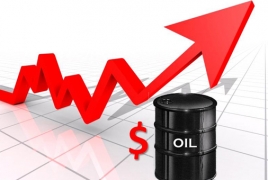
“For 2022 as a whole, we expect that growth in production from OPEC Plus, of U.S. tight oil, and from other non-OPEC countries will outpace slowing growth in global oil consumption, especially in light of renewed concerns about COVID-19 variants,” the EIA said in a recently issued short-term energy outlook.
“In reality, crude oil futures prices have witnessed substantial correction since early November due to the decision to release crude oil stocks in a few major oil consuming countries and warmer-than-expected winter in the Northern Hemisphere so far.
Brent crude oil futures prices will average 70 U.S. dollars per barrel in 2022,” the agency stated in the outlook.
But, in a bullish report from JP Morgan, analysts are predicting $125 oil this year and $150 oil in 2023.
The forecast, according to the report, is driven by the belief that OPEC has a limited capacity to increase oil production.
“Crude oil could soar to $125 per barrel next year and $150 in 2023 due to OPEC’s limited capacity to boost production,” JP Morgan analysts said in a new report.
“OPEC+ is not immune to the impacts of underinvestment…. We estimate ‘true’ OPEC spare capacity in 2022 will be about 2 million barrels per day (43%) below consensus estimates of 4.8 million,” the team, led by Christyan Malek, wrote.
“While we believe a three-month pause to 400,000 barrel-per-day monthly increments is needed during the first half of 2022 to balance the market (and potentially a cut pending impact of new COVID variants), the group will struggle to deliver monthly growth of more than 250,000 barrels per day once reinstated,” the analysts also said.
Follow us on twitter
